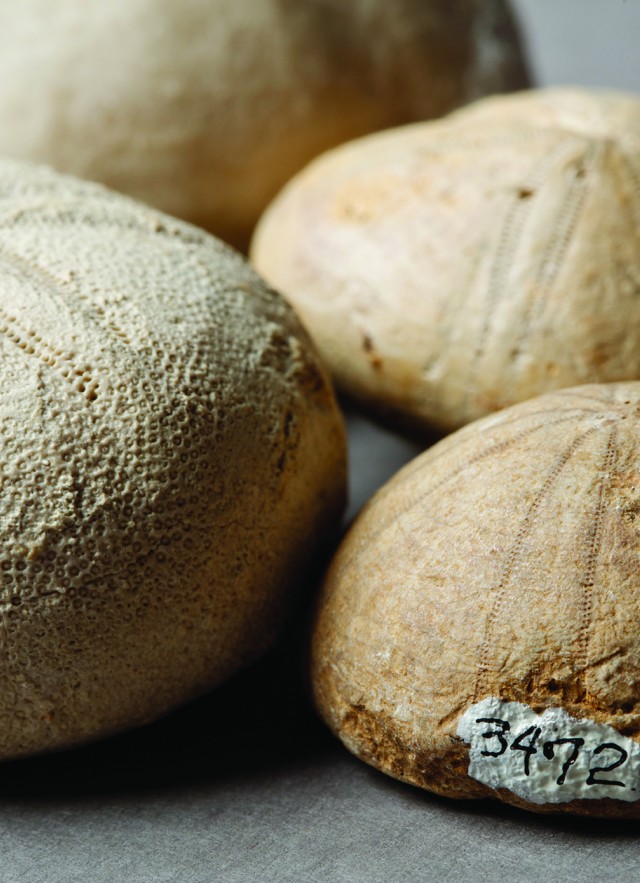Invertebrate Paleontology

The Invertebrate Paleontology Department of the Natural History Museum of Los Angeles County houses fossils of animals that lack a backbone (non-vertebrates), such as arthropods (e.g., crabs and shrimps), molluscs (e.g., clams and snails), echinoderms (e.g., sand dollars and sea urchins, and corals. The Invertebrate Paleontology Department also houses collections of ichnofossils (traces of previously living organisms), which may include track ways, burrows, borings, and coprolites (fecal pellets). Invertebrates comprise 95% of Earth’s biodiversity and include about 30 different phyla, and occur throughout most of Earth’s geological history. Invertebrate fossils are very useful in many types of scientific study, such as determining the correlation and order of rock layers (stratigraphy), dating of rocks (biostratigraphy), and reconstruction of ancient environments. In addition, these fossils are used to help classify and establish the relationships among ancient life.
The Invertebrate Paleontology collections are the third largest in the country, with an estimated 6-10 million specimens. These collections span the Phanerozoic, but represent the world’s largest collection of Cretaceous-Cenozoic mollusks from the Pacific Rim. The collection has grown through a century of research by NHMLAC staff, and amalgamation of former collections from the California Institute of Technology, California State University Northridge, University of California Los Angeles, and University of Southern California.
RESOURCES
The Paleontological Society An international nonprofit organization devoted exclusively to the advancement of the science of paleontology.
Southern California Paleontological Society Meets monthly at La Brea Tar Pits.
Geological Society of America Established in 1888, The Geological Society of America is an organization of professional earth scientists, including paleontologists, "enhancing the professional growth of its members, and promoting the geosciences in the service to humankind and stewardship of the Earth."
Society for Sedimentary Geology Nonprofit society dedicated to the dissemination of scientific information on sedimentology, stratigraphy, paleontology, environmental sciences, marine geology, hydrogeology, and many additional related specialities.
PaleoNet System of listservers, World Wide Web pages, and FTP sites designed to enhance electronic communication among paleontologists and all persons interested in the study of ancient life.
Search our Collections
We are presently developing new database tools that will enable greater exploration and discovery of these collections. Our existing database contains information on almost 30,000 fossil invertebrate localities and nearly 1 million specimens. Our type collections of 11,000 specimens are also included in the database. Cataloging is an on-going process, and we add new information daily. The database currently holds hundreds of digital images of specimens, in addition to maps, photographs, and pertinent field notes have been scanned and included for many collecting localities. Check out our summary of stratigraphic and geographic coverage in the database. A formation-level inventory can be found here. The initial database development and cataloging efforts were funded by a grant from the National Science Foundation to digitize NHMLAC’s extensive holdings of Pleistocene fossils from the West Coast of North America.
Our Staff
CONTACT US
For further information about the Invertebrate Paleontology Department, contact invpaleo@nhm.org.